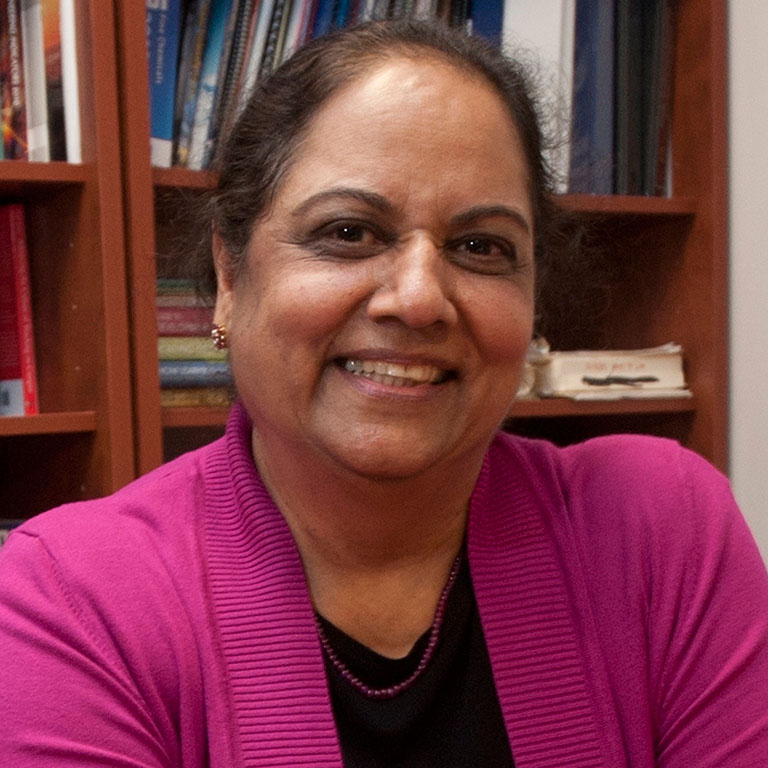Four projects led by IUPUI researchers were selected by the STEM Education Innovation & Research Institute (SEIRI) as 2021 and 2022 seed grants recipients as part of the annual competition facilitating and supporting STEM education innovation and research.
SEIRI functions as a hub of STEM education activities at IUPUI, combining educational researchers with expert scientists to shape and mold undergraduate and graduate education. Introduced in 2016, the SEIRI seed grant (SSG) program – which awards up to $30,000 for departmental projects and up to $15,000 for individual or faculty team projects – allows principal investigators to cultivate, implement and assess their courses and solve present issues. This year, the four awarded projects received seed grants totaling $89,748.
"These professional development opportunities provide funding to faculty members to develop, implement, and evaluate the impact of pedagogical innovations in IUPUI STEM courses," said Pratibha Varma-Nelson, SEIRI founding executive director. "This is much more effective than other faculty development activities as it is done in the context of their own innovations and has resulted in NSF funding for several of the SSG projects."
2021 and 2022 SEIRI seed grant projects:
- "Developing Culturally Relevant Pedagogy to Improve the Enrollment and Retention of Underrepresented Students in Computing Programs": Shamima Mithun, senior lecturer, Department of Computer and Information Technology; Xiao Luo, assistant professor, Department of Computer and Information Technology.
- "Analysis of digital course materials and student personal technology in STEM courses: Developing instructional design to support 21st century student learning": Robert Elliott, teaching professor, Department of Computer and Information Technology; Xiao Luo, assistant professor, Department of Computer and Information Technology.
- "Improving student engagement, connectedness and learning equity through AI-enhanced teaching & learning environments": Fawzi Ben Messaoud, lecturer, Department of Human-Centered Computing, School of Informatics and Computing; Louie Zhu, senior lecturer, Department of Human-Centered Computing, School of Informatics and Computing; Davide Bolchini, department chair, Department of Human-Centered Computing, School of Informatics and Computing.
- "Improving Informatics Competencies in Undergraduate and Graduate Education Using Guided Inquiry Learning by Developing a Comprehensive Educational HER": Cathy Fulton, assistant professor, Department of BioHealth Informatics, School of Informatics and Computing; Saptarshi Purkayastha, director, Department of BioHealth Informatics, School of Informatics and Computing; Lisa DesNoyers, director, Department of Health Information Management, School of Informatics and Computing; Sarath Chandra Janga, associate professor, Department of BioHealth Informatics, School of Informatics and Computing.
Abstracts for 2021 projects can be found here and abstracts for 2022 projects can be found here.
“The funding made it possible for us to conduct detailed analysis of billions of rows of data and apply machine learning algorithms to help us better understand student behavior,” said Robert Elliott, PI of one of the awarded projects. “The goal, of course, is to increase student success – and I believe we can do that by improving the alignment of the delivery of course materials with the technology available to the students.”
The SEIRI seed grants are not awarded only for faculty-based development but meant to improve the learning environment of IUPUI students through project-based faculty development. This makes projects more competitive for external funding.
"With this seed grant, we can transform our prototype into a full production first version of 'FazBoard,' an intelligent learning/teaching system capable of improving student engagement, connectedness and learning equity," said Fawzi Ben Messaoud, PI of one of the awarded projects. "The SEIRI seed grant will help us demonstrate how FazBoard will allow a teacher to focus on learning and to engage students through active learning using a combination of infinite digital board and an integrated AI Assistant available 24/7 as the Teacher's Assistant (TA) and the student's learning BFF."
The next request for proposals for the SSG program will be posted on the SEIRI website in November. For more information, contact Pratibha Varma-Nelson, SEIRI founding executive director, at pvn@iupui.edu or Danka Maric, SSG coordinator, at dmaric@iu.edu.




